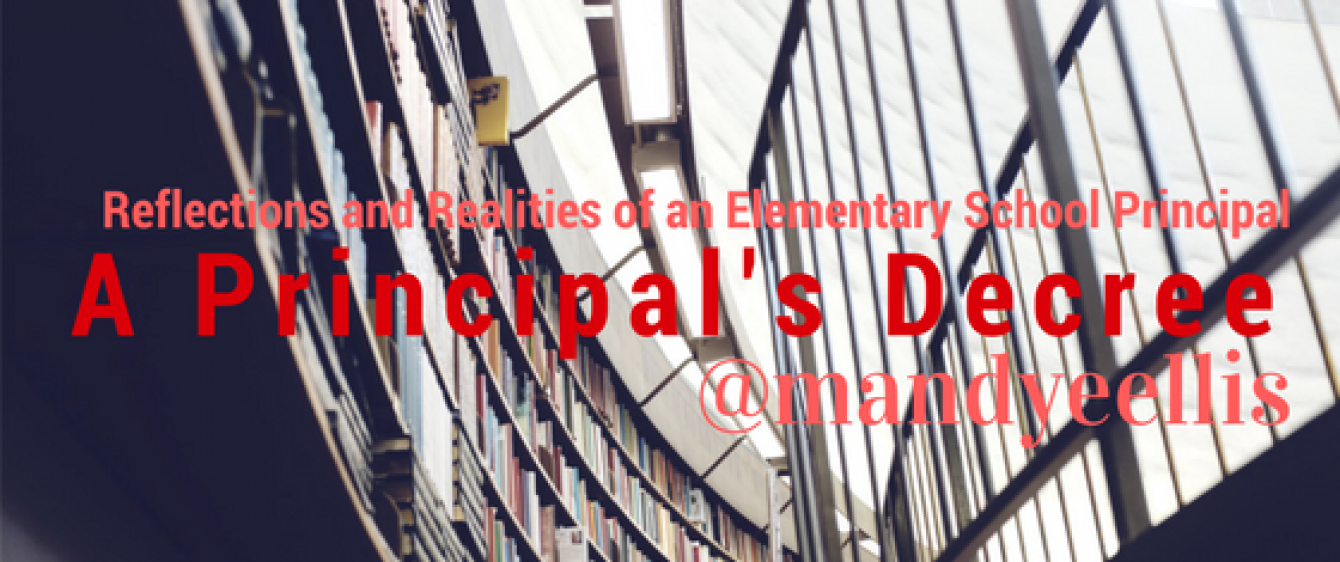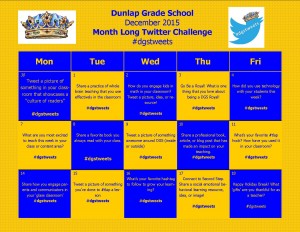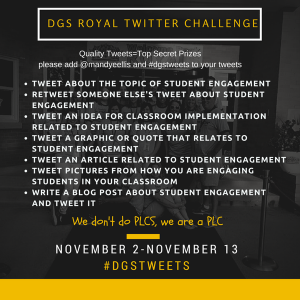C is for Collaborative Conversations: Challenge Accepted
As I progress through the Anchor Conversation Challenges, I am growing as a leader and honing effective best practices in observation, evaluation, coaching, and feedback. I love that the challenges give me a framework to be more strategic and focused when I provide feedback to the team. During this challenge, I maintained the integrity of the first two challenges by dropping anchors of appreciation and noticing the impact of instructional practices. These two pieces are vital to build rapport, respect, and positive culture surrounding the feedback and coaching.
I plan to continue this process, but as a result of my initial collaborative conversations I have gained a lot of insights in to the classrooms and teachers I have visited:
- I asked:
I noticed you using some conference forms. I’d love to chat with you about how these forms are going and the impact you see them having in your classroom. If you have a second, let’s chat about them at some point today.
From our Collaborative Conversation, I learned how reading conferences in that classroom dig deep to determine a variety of behaviors, preferences, and information on students related to their reading habits. A teacher took her learning from the Illinois Reading Conference and has been embedding these in her daily reading block to building relationships and rapport with her classroom of readers.
- I asked:
I noticed your Whole Brain Teaching Book was out on your desk. What strategies have you been trying out or are seeking to have a better understanding of? I’d love to learn more. When you get a chance, come down to the office at some point this week so I can learn more!
From our Collaborative Conversation I learned this classroom teacher is pursuing whole brain teaching certification by independently and voluntarily re-reading and responding on a blog with other connected educators. Our conversation about this led to her agreeing to share this practice at an upcoming professional development breakfast club meeting. Excellent teachers share their learning with others.
- I asked:
I’d love to know a little more about how the 3rd grade team prioritizes focus areas for students based on the data sheet if a child has multiple areas of need. Please pop into the office at some point so we can discuss how this works so I can have a clearer understanding.
From our Collaborative Conversation I learned through our collaborative conversation that classroom data is being reflected on by a group of students to determine their own intervention groups and focus areas. Students look at this performance data and decide which intervention groups they go to based on classroom based assessment. The classroom teacher is involved in assisting students in prioritizing academic and behavioral goals.
More importantly, I gained a deeper insight into what I observed by inviting teachers into my office to further provide information to their practices. I was able to wear the hats of coach and learner as my own knowledge base was deepened by the information that was shared with me and I was able to provide verbal feedback to the teachers during the conversation.
Following the last three challenges, I sought feedback from my teachers about how they felt the feedback was being delivered.
One teacher wrote:
I like how you gave me things to consider and reflect on! Also, I liked how you asked me more about something I am doing. I know you stop into our rooms as much as you can, but it is nice to know that if you aren’t sure how we do something, you aren’t afraid to ask! J Thanks for all you do!
To provide an ongoing opportunity to solicit an understanding of teaching practices and to foster collaboration amongst teacher staff and myself, I developed twitter challenges. These voluntary opportunities have the power to foster professional learning and engage teachers in collaborative dialogue and conversations. Reading through posts thus far is exhilarating as staff shares blogs, articles, quotes, resources, and ideas with each other. Twitter provides teachers the opportunity to continue the conversations we may hold and provides them engagement in their teaching and learning that we want for our students.



